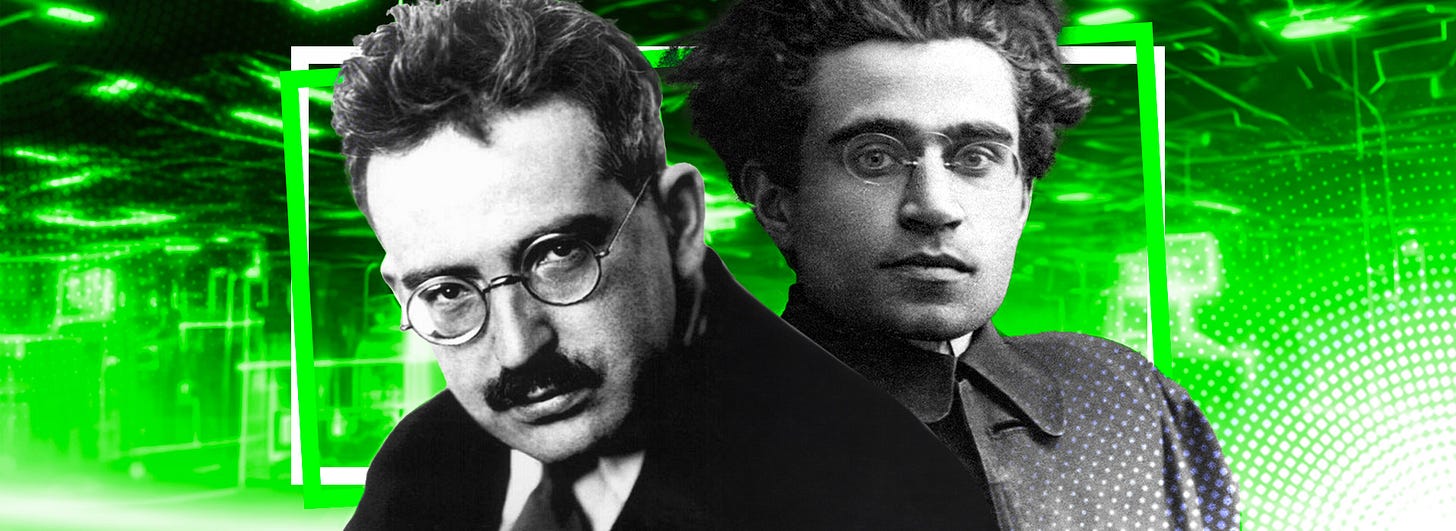Antonio Gramsci had a phrase for it: pessimism of the intellect, optimism of the will. It sounds like scripture because it names an uncomfortable truth—seeing the world as it is, stripped of illusion, is the first step toward changing it. It must be disciplined, shaped, turned into something that moves. Diagnosis isn’t action. Indictment isn’t struggle. Power doesn’t tremble before critique. It has to be confronted.
Walter Benjamin pushed further: pessimism, on its own, is insufficient, writing: “To organize pessimism means nothing other than to expel moral metaphor from politics and to discover in political action a sphere reserved one hundred percent for images.”
Real optimism is not a mood. It is not the belief that things will get better because they should. It is, instead, the decision to act despite knowing that they probably won’t—at least not easily, or quickly, or in the way you imagined. Power never abdicates willingly, and history is full of those who believed otherwise.
Both Gramsci and Benjamin wrote from within the wreckage: one from a prison cell, the other trying to escape from a continent sliding into fascism. They did not traffic in blind hope. They knew that hope, untethered from discipline, from thought, from organization, was nothing more than a comforting lie.
Gramsci’s directive is blunt: pay attention. Do not flinch from the world as it is. Do not retreat into comforting illusions about progress or inevitability. Recognizethe hard edge of reality and, precisely because of that, refuse to surrender.
I have found myself increasingly pessimistic, mostly glass half-empty. But pessimism, on its own, is useless. Organizing pessimism means rejecting both the fantasy of hope and the paralysis of despair. It means seeing the catastrophe clearly and fighting anyway. It means casting off the false comfort of righteousness and meeting the world as it is—messy, brutal, shaped not by ideals but by those willing to act.
It is not a place for the clean or the certain—it is a tangle of hands and voices, a slow, stubborn wrestling with history. It belongs to those willing to step in, risk the weight of it, and shape the world with all the grace and failure that struggle demands. It means understanding that the world does not reward moral purity, that justice is not inevitable, and still choosing, against the weight of all that knowledge, to build something better.





A good example is AOC talking last night about going out there and informing the department of labor that sharing data with DOGE is a violation of the law. Every small step to protect our rights is worthwhile in the face of tyranny - all pessimism does is give away without any fight.
Thank you for this. I’ve found that not flinching from the world is actually grounding, and in a weird way, calming. As much as pessimism is warranted, it’s also true that many of (all?)the rights and advances humans have made were made through organized movements. So there is real reason for optimism too - not to reach utopia, but at least a better reality. This too has been proven throughout history.